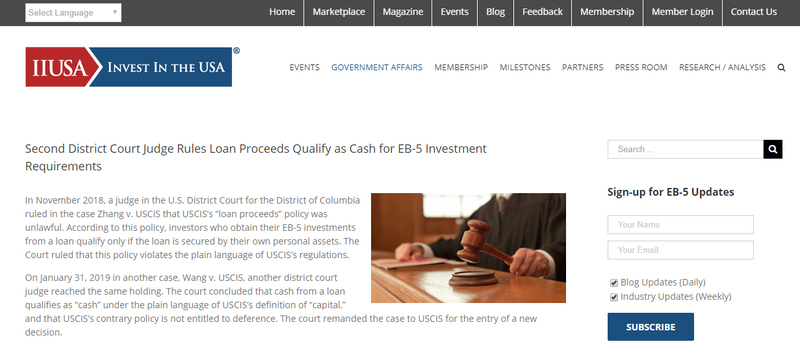Second District Court Judge Rules Loan Proceeds Qualify as Cash for EB-5 Investment Requirements
In November 2018, a judge in the U.S. District Court for the District of Columbia ruled in the case Zhang v. USCIS that USCIS’s “loan proceeds” policy was unlawful. According to this policy, investors who obtain their EB-5 investments from a loan qualify only if the loan is secured by their own personal assets. The Court ruled that this policy violates the plain language of USCIS’s regulations.
On January 31, 2019 in another case, Wang v. USCIS, another district court judge reached the same holding. The court concluded that cash from a loan qualifies as “cash” under the plain language of USCIS’s definition of “capital,” and that USCIS’s contrary policy is not entitled to deference. The court remanded the case to USCIS for the entry of a new decision.
Mentions
Litigation Cases
States
- New York
Securities Disclaimer
This website is for informational purposes only and does not constitute an offer or solicitation to sell shares or securities. Any such offer or solicitation will be made only by means of an investment's confidential Offering Memorandum and in accordance with the terms of all applicable securities and other laws. This website does not constitute or form part of, and should not be construed as, any offer for sale or subscription of, or any invitation to offer to buy or subscribe for, any securities, nor should it or any part of it form the basis of, or be relied on in any connection with, any contract or commitment whatsoever. EB5Projects.com LLC and its affiliates expressly disclaim any and all responsibility for any direct or consequential loss or damage of any kind whatsoever arising directly or indirectly from: (i) reliance on any information contained in the website, (ii) any error, omission or inaccuracy in any such information or (iii) any action resulting therefrom.




